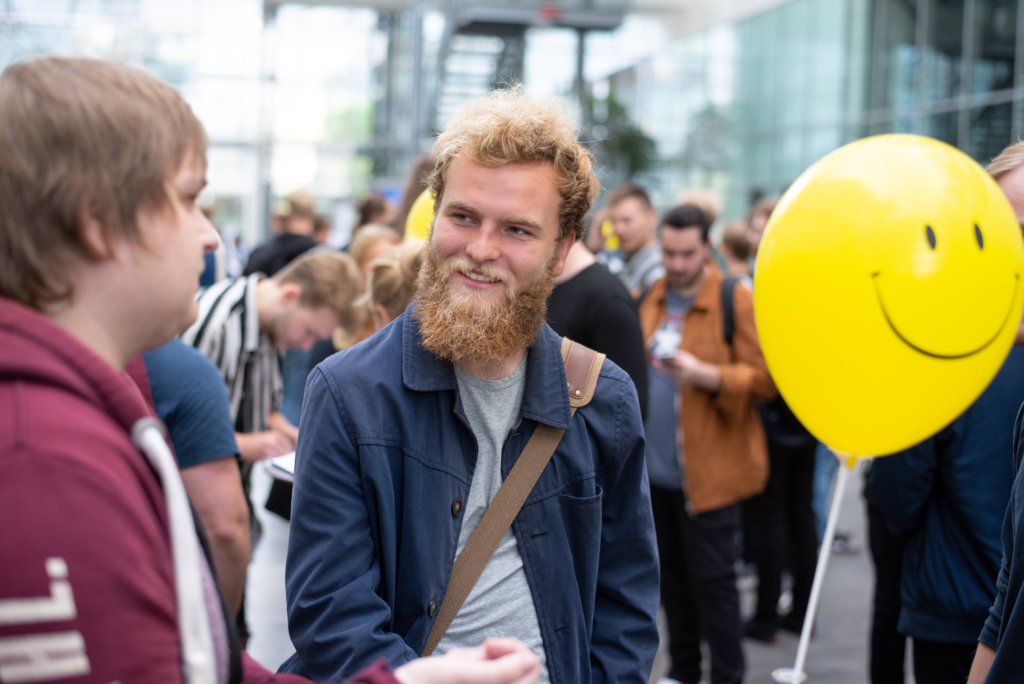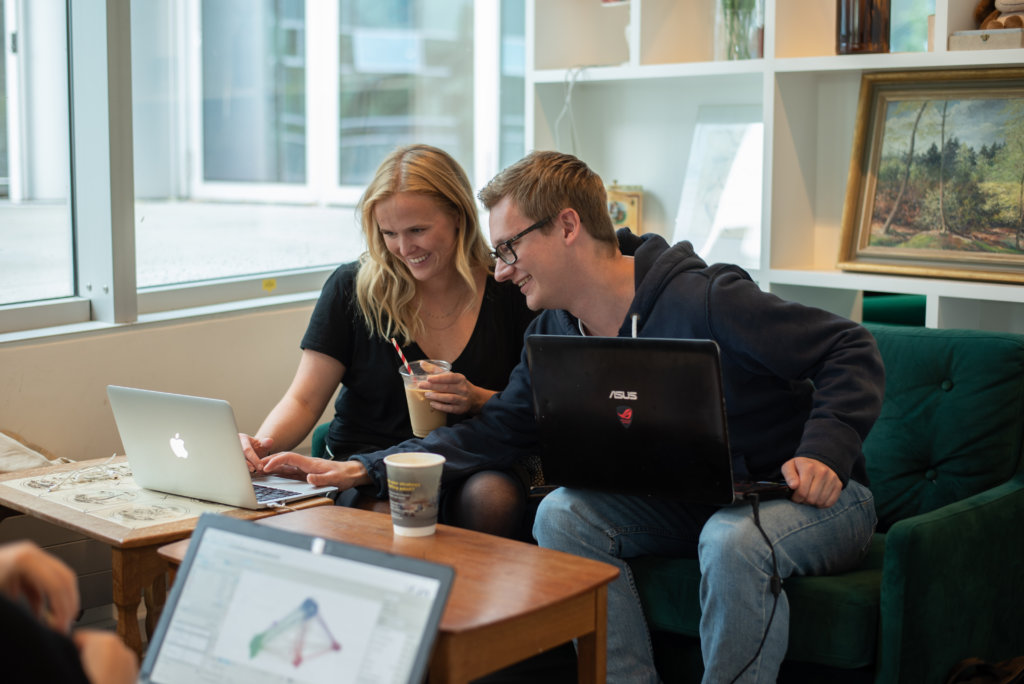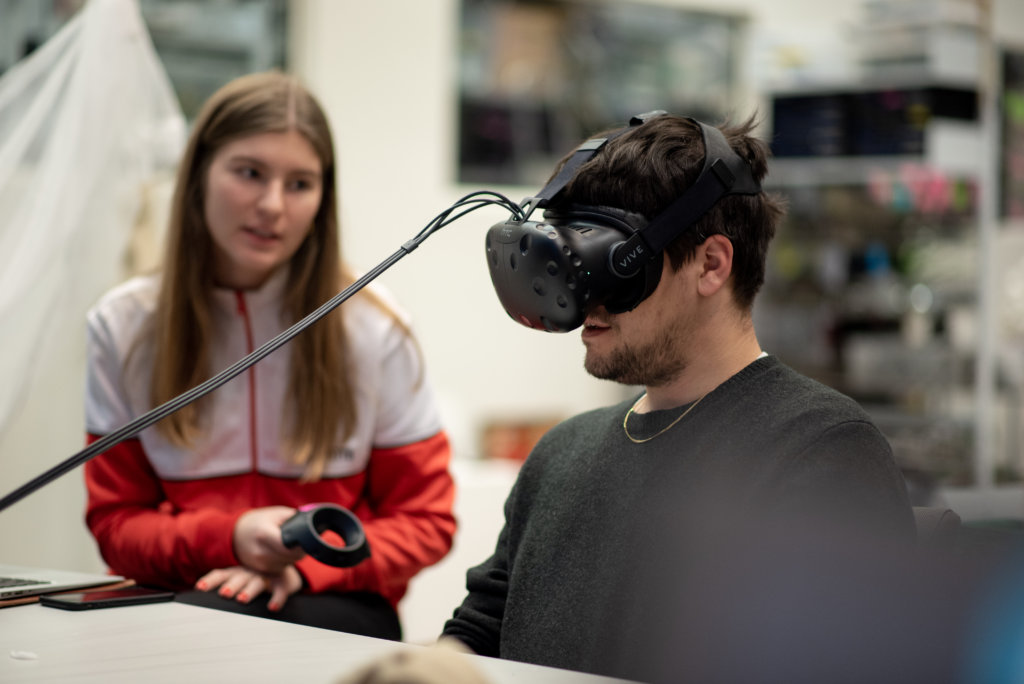Many believe the road to a successful tech career requires just a bachelor’s degree. The truth, however, is far more nuanced. Just ask Luca Maria Aiello, who heads the Data Science programme at The IT University of Copenhagen’s (ITU) Computer Science Department.The increasing number of young students who get a bachelor’s degree is great,” he says. “But this boosts the value of getting a master’s degree too. Very often, continuing your studies with a master’s degree pays off considerably a few years down the line, and this is even more true for PhDs.”
Aiello would know. Before joining ITU, he spent 10 years in industry after earning a PhD in Computer Science. He spent five years conducting research in data science at Yahoo Labs before joining Nokia Bell Labs in Cambridge to explore how we can use sensor data to improve the health and well-being of people. Then, academia called. “Somehow, I’ve always wanted to go back to academia because I wanted to give back some of the knowledge that matters to students. I like working with students a lot,” he says.
“But also, I went back at that point because it was good timing. There was an open position here at ITU in a team called NERDS (NEtwoRks, Data, and Society), full of people who are very much aligned with what I do. It was the perfect opportunity to come to Copenhagen.”

ITU’s small size is a significant advantage, fostering a close-knit community where both faculty and students enjoy a more personalised and accessible environment. Source: IT University of Copenhagen
Established in 1999, ITU is a Danish institution devoted solely to IT research and education. Today, ITU is Denmark’s youngest university with one of the highest employment rates of graduates. It offers 10 programmes covering games, digital design, data science, business, and software engineering, most of which are taught in English. These programmes combine a unique view of IT education and research.
At ITU, the focus is on providing a robust foundation for specialisation in various tech-related domains. It’s not just about meeting current demands but also forecasting the market’s future. ITU does this well because it recruits outstanding faculty — lecturers who are not just educators but world-class researchers.
Their insights into the evolving landscape of technology and its relation to industry are unparalleled. This foresight isn’t just theoretical; it’s rooted in practical experience. And ITU educators impart these “good hunches about what the next hot topics are” to master’s students with enthusiasm. “This combination of high-quality research, prior experience in the industry, and dedication to teaching is a good blend that’s rare to find,” says Aiello.

At ITU, students learn what the industry truly demands, resulting in exceptionally high employability. Source: IT University of Copenhagen
This compelling combination is on full display in ITU’s master’s programmes. The business-focused MSc in Computer Science gets students working on projects related to software development and maintenance as well as learning about the organisational and managerial part of a development process. Through this programme, students also gain in-depth knowledge of modern programming languages, databases, distributed systems, IT security, algorithms and data structures as well as software development processes.
Meanwhile, the MSc in Data Science equips students with advanced analytical and technical skills covering all aspects of handling, analysing, presenting, and operationalising data. It provides them with a profound mathematical and algorithmic foundation for understanding emerging technologies, statistics, and computational challenges. All of this helps them further specialise the skills and knowledge that they’ve acquired in their bachelor’s degrees

AT ITU, students are able to experiment with the latest in technology, and truly understand the real-world applications. Source: IT University of Copenhagen
Whichever programme they choose, students have opportunities to embark on front-line research projects in collaboration with various companies. These are not limited to profit-driven enterprises but also include public entities such as Statistics Denmark. These partnerships offer students access to rich and diverse datasets, exposing them to real-world challenges and opportunities.
“At ITU, we’re teaching based on research because everything we teach tends to convey concepts, notions, techniques, or protocols from recent research in different fields — for example, advanced concepts of IT security and cryptography. We have a strong security specialisation in Computer Science with people working with cutting-edge work there,” Aiello says.
ITU also meets with an employer panel twice a year to ensure the programme’s objectives are aligned with industry needs. “What employers usually tell us is that the research mindset among the candidates is the primary indicator they use when hiring,” Aiello says. “Employers love hiring graduates who have the chance to put their research thinking into practice. This is the focus across all our programmes.”
Click here to learn more about The IT University of Copenhagen.










